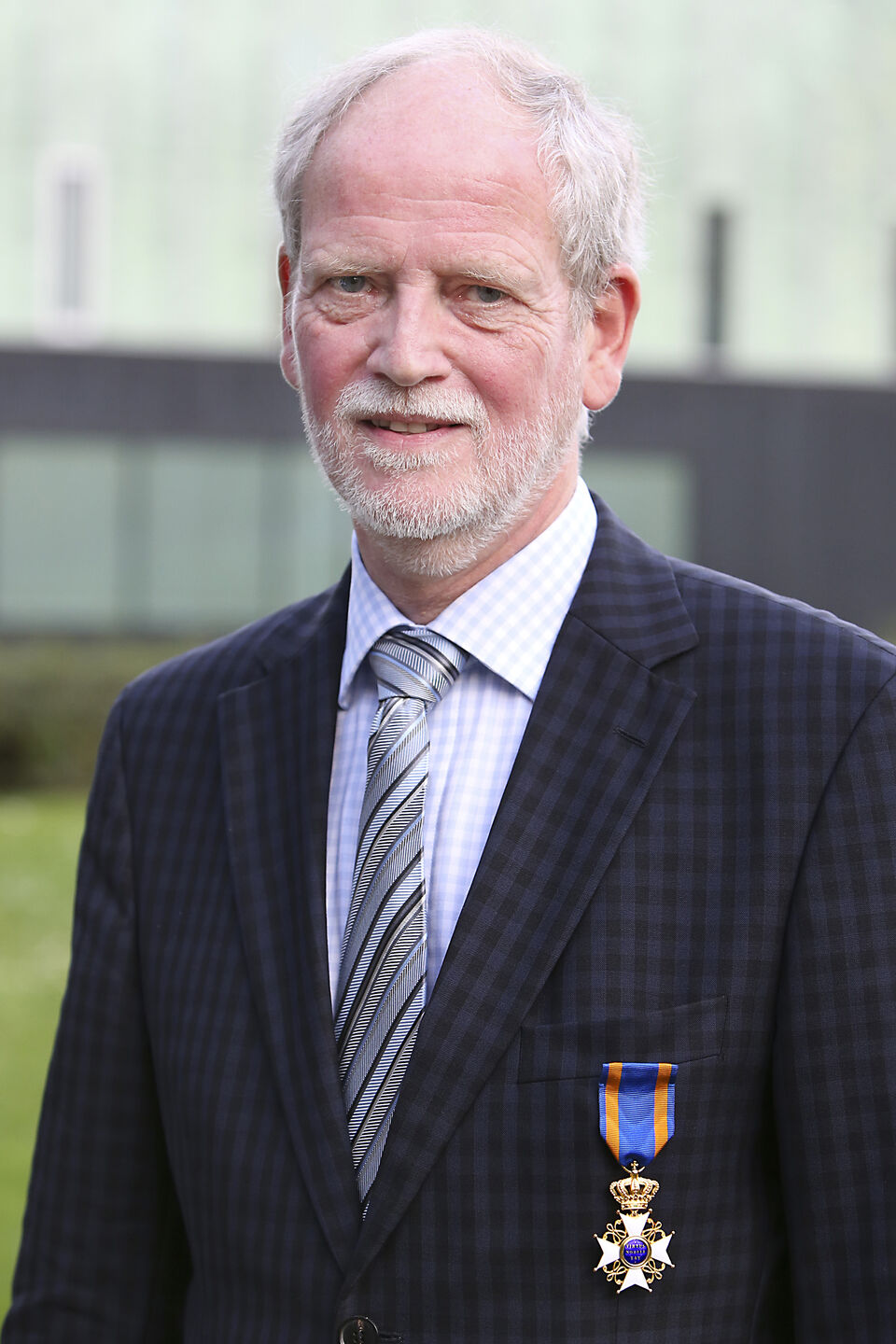Royal honor for battery professor Peter Notten
On Friday afternoon, TU/e professor Peter Notten, whose specialist field is sophisticated battery technology, was appointed Knight of the Order of the Netherlands Lion. He received the prestigious title, which was awarded at his retirement party, for his contribution to electrochemistry.
The professor, who has been granted emeritus status, was presented with the ornaments associated with his Royal Honor by Mayor Jan Brenninkmeijer of Waalre, in the presence of Executive Board President Jan Mengelers of TU/e. The venue was De Zwarte Doos. According to his nomination, 65-year-old Notten has earned the royal honor for his “important contribution in the field of sophisticated battery technologies, in particular to research into better battery materials, models, and battery management systems.”
It was thanks in part to Notten's work for his former employer Philips that developments such as the nickel-metal hydride battery came about: the type of battery used in the first cordless telephones and that is still used in other applications, such as hybrid cars like the Toyota Prius. In addition, the nomination states that the TU/e professor has made an important contribution to the current storage and production of hydrogen for green energy applications.
The brand new Knight was modest in his reaction. “I was delighted by the honor, and – as is customary – knew absolutely nothing about it beforehand. In my word of thanks on Friday, I emphasized that the highlight of my career has been the opportunity to work with so many talented young researchers. They came up with the brilliant ideas and performed all those wonderful experiments.”
Since 2010 Notten had been the head of the interdepartmental group Energy Materials and Devices at the Departments of Chemical Engineering and Chemistry and Electrical Engineering. He has authored and co-authored more than 250 scientific articles and contributions to scientific books, and owns some 30 patents. In 2014 he was appointed International Adjunct Faculty at Amrita University in India.
In addition, the battery expert holds the position of group leader at Forschungszentrum Jülich in Germany. “This is part of a cooperative relationship between TU/e and this research centre in the field of energy storage. The PhD candidates working there under my supervision will earn their PhDs at TU/e. At least they will do in the coming five years, as long as I am still authorized to confer PhDs.”


Discussion